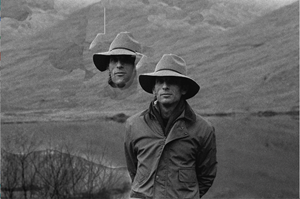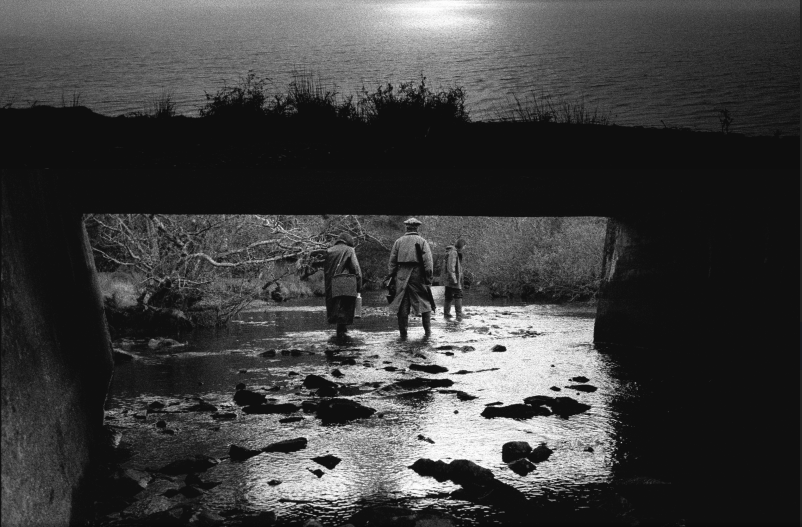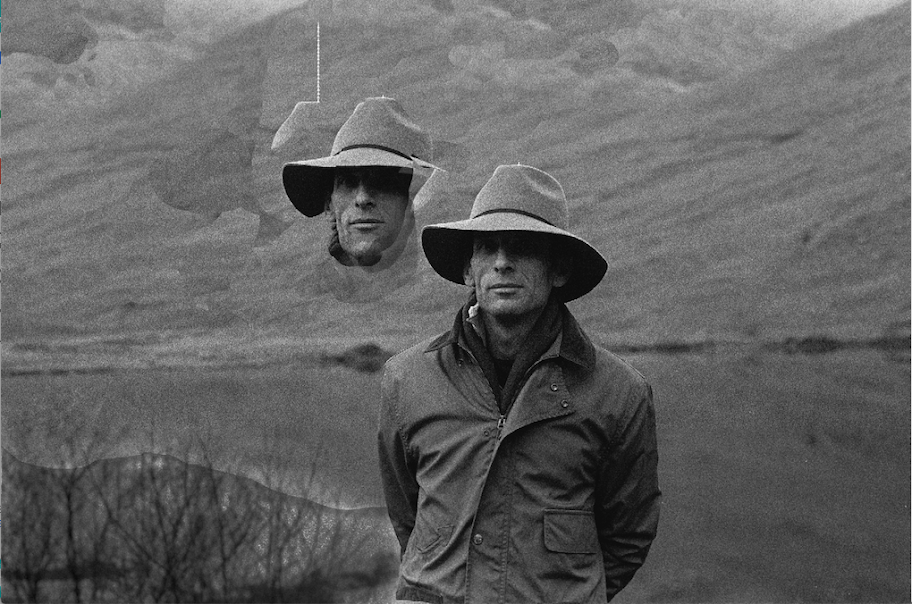
Albert Serra will present Singularity, a project commissioned by the Institut Ramon Llull as the Catalan participation at Venice Biennale, curated by Chus Martínez. The filmmaker previewed this in-development project in London in occasion of his retrospective at Tate Modern.
Albert Serra will present Singularity, a project commissioned by the Institut Ramon Llull as the Catalan participation at Venice Biennale, curated by Chus Martínez. The filmmaker previewed this in-development project in London in occasion of his retrospective at Tate Modern.
If you ever attend a film preview by Albert Serra, expect to have a bizarre and unique evening. The Catalan filmmaker presented last Friday 13 March at Tate Modern a preview of his piece Singularity (La Singularitat), an in-development project commissioned by the Institut Ramon Llull with which he will represent the Catalan Pavilion at the Venice Biennale 2015.
Known for his provocative and unconventional methods, Serra invited the performer Jordi Valls / Vagina Dentata Organ to cleanse the auditorium from the remains of previous screenings before the projection of his piece, as his films are “as pure at it can be in the art world”, according to the filmmaker. This purification consisted of a sadomasochist ritual, which was followed by the entrance of over fifteen drums into Tate’s auditorium with a deafening clatter. The show went on with a naked woman pouring flour on herself on stage, while Jordi Valls was whipping the screen and it ended with Serra taking flour from the lady’s body to spread it on the screen in a sort of blessing gesture.

Singularity © Albert Serra Juanola
The reactions to this pre-preview were diverse. Applauses were played through the speakers as a playful response to the muted audience. Other reactions took a more emboldened tone, like the lady who stood up and spilled a jug of water on the filmmaker while letting him know her opinion on a “disgusting ceremony”.
Everything can happen in the presence of Albert Serra. In fact, the unexpected is an integral part of his universe. What interests him the most is to create an atmosphere that enables him to “fill the mind of the actors with ideas they wouldn’t expect to think”, to take them in a non-existent world. For this reason, he understands the script as a starting point, a guide to be aware of the mise-en-scène, the costumes and technical requirements. His scripts barely have any dialogues, but they contain notes that will help him creating the right situation to develop the characters while shooting.

Singularity © Albert Serra Juanola
Serra is interested in seeing the fight between the actor and the character, by introducing situations that are not familiar to them. To do so, he never works with professional actors because, beside “not liking them as human beings” (in the Gaudi Awards ceremony of 2014 he suggested sending all the actors to Guantanamo), they adapt too quickly to the characters. In Singularity we will see again some of his old friends who have already appeared in previous films as Honour of the Knights (2006), Birdsong (2008) or Story of my Death (2013).
When they perform in front of the camera, they improvise in a context that is partly created by them. Serra states that he hardly looks at the set while shooting, as a method to push the development of a fantasy in the actors’ mind, which would break under his gaze. He is also interested in how images act in a given diversity of contexts. The magical moment arrives during the edit: “I have to see the film to know what it is about”.

Singularity © Albert Serra Juanola
So, what will Venice Biennale’s audience discover in Singularity?
The point of departure of the film is the notion of singularity itself. The term refers to the moment when artificial intelligences will surpass human capacity and human control. In mathematics, singularity describes a point at which a given mathematical object is not defined or not “well-behaved,” for example infinite or not differentiable.
It is about science as an intermediary of our relationship with technology and about how the way we relate to information, to images produced by machines, to representation, to the interplay between culture and nature.
Chus Martínez, curator of the Catalan Pavilion, states that in this film “science” is a condition, not a subject. They won’t refer to technology itself, but try to point out that we are living in it.
The details of the final format are still a secret, but it will be designed to investigate the range of “applications” the notion of singularity has. They announced that the project will have a more expansive format than previous films and it will be presented in five juxtaposed screens to create an asphyxiating feeling in the audience.
For Albert Serra, Singularity is another step to approach the topic of the body in his films and how this has changed through the years. In his first films, he explains, the characters represented the innocence, and then he started to develop the idea of desire to eventually evolve into sexual desire. In Singularity he introduces the idea of the use of the body through prostitution, to end with the disappearance of the body, represented by the homosexuality of most of the characters, which are unable to reproduce.

Singularity © Albert Serra Juanola
This non-reproducibility also opposes to the context of the film, shot in a mine, which is in constant activity to produce goods, under an economical system of productivity.
Albert Serra is a filmmaker who likes originality, not only in terms of experimenting with new methods and story lines, but also with the spaces where he displays his projects. His films can normally be seen more in art spaces and festivals, rather than in cinemas. At Tate’s preview he also screened some cuts of the film The three little pigs, launched last year in Kassel’s dOCUMENTA (13). This experimental piece, produced as an intermediate point between monologue and performance, was built around the imagined interaction between Goethe, Hitler and Fassbinder.
Venice Biennale offers a new opportunity to Albert Serra to prove his ingenuity and produce a new project that will be shown to an international audience. The 2015 Catalan Pavilion will mark a milestone in the filmmaker’s career that will certainly provoke extreme an opposed reactions, as often occurs with his projects.

ArtDependence Magazine is an international magazine covering all spheres of contemporary art, as well as modern and classical art.
ArtDependence features the latest art news, highlighting interviews with today’s most influential artists, galleries, curators, collectors, fair directors and individuals at the axis of the arts.
The magazine also covers series of articles and reviews on critical art events, new publications and other foremost happenings in the art world.
If you would like to submit events or editorial content to ArtDependence Magazine, please feel free to reach the magazine via the contact page.